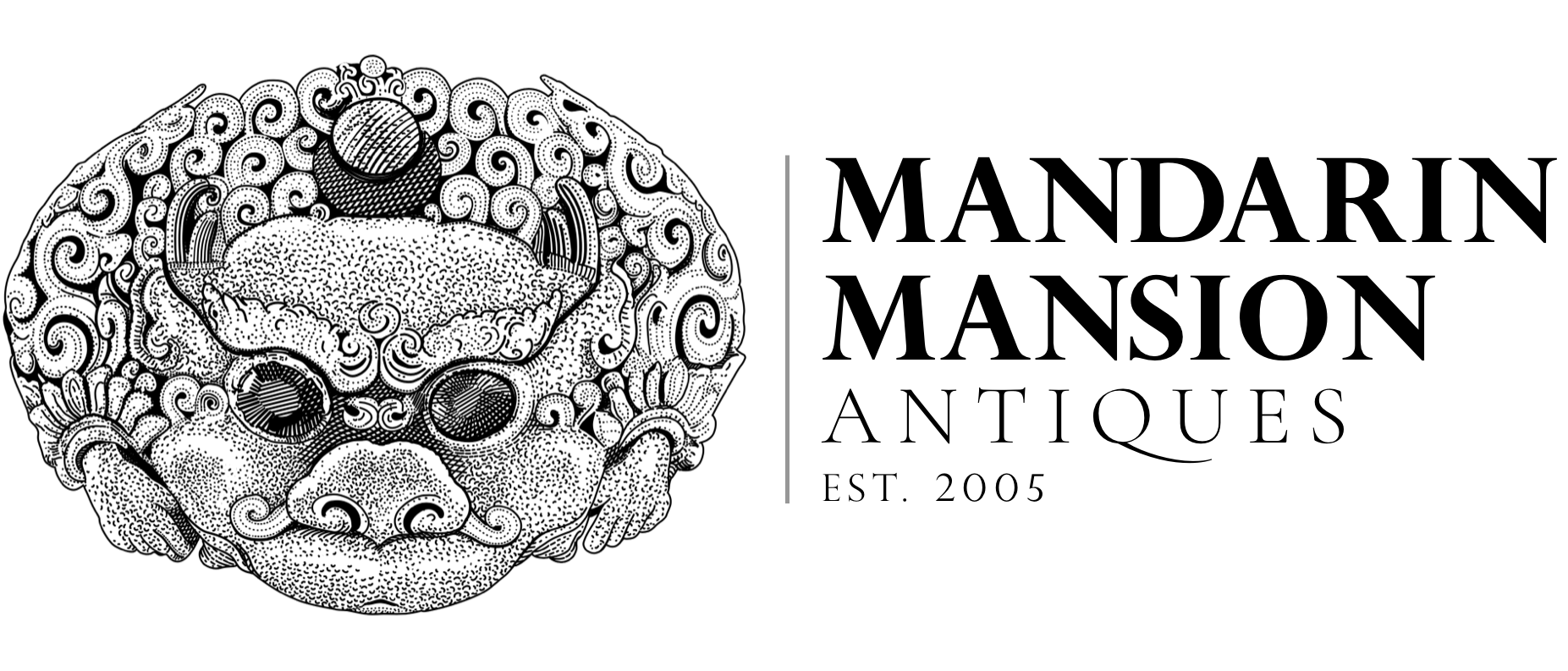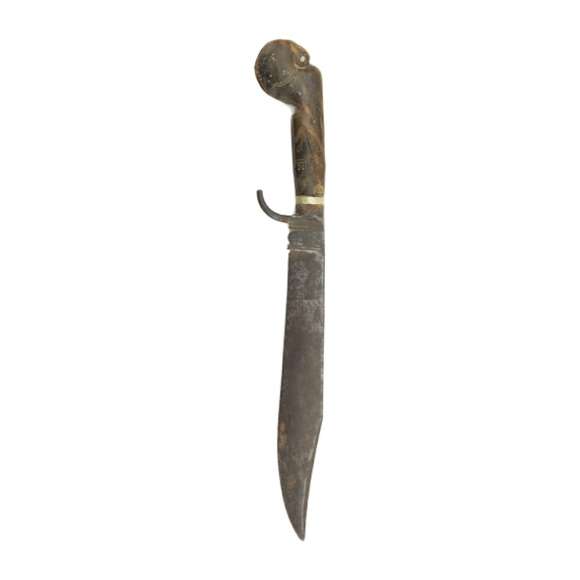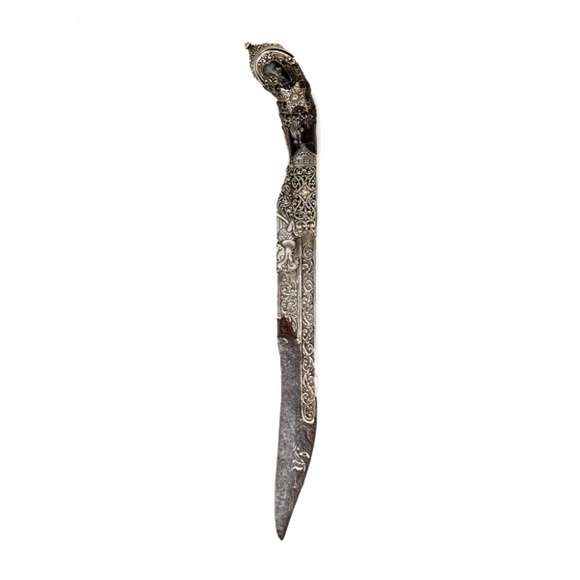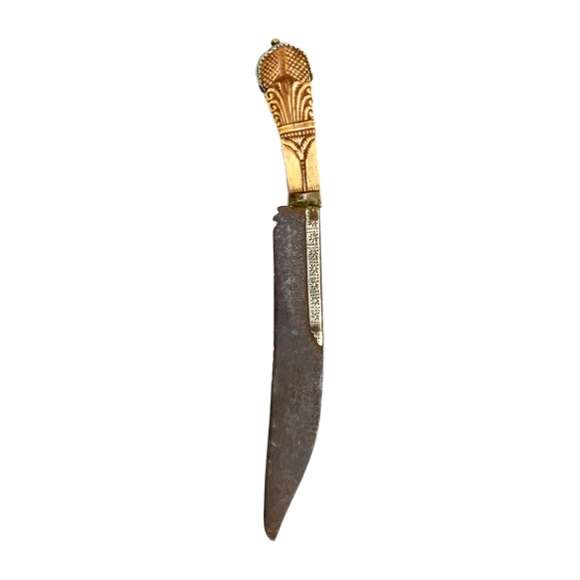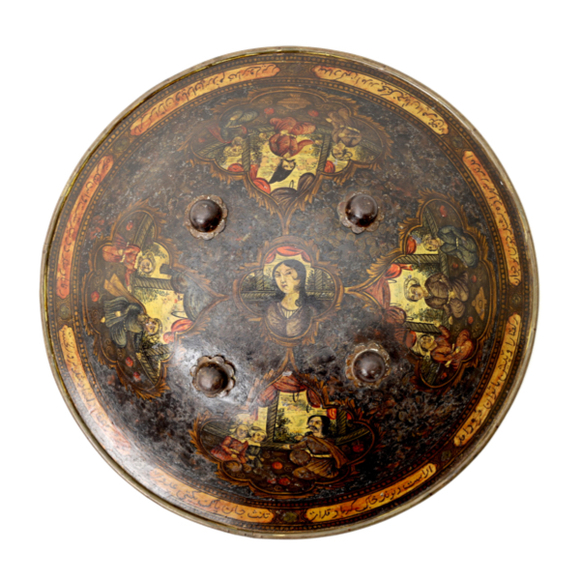Language: Sinhalese
Source: Standard literature
Description
Ī-vaḍuvō, literally "arrow-makers" were Sinhalese craftsmen that were involved in both the turning of wooden objects and lacquering them.
At any time, two of them would be working in the armory of the king's Paṭṭal Hatara or "Four Workshops". They would produce mainly bows and shafts for (ceremonial) polearms like the patisthānaya.
The Sinhalese craftsmen had a peculiar way of applying the lacquer that did not involve a brush. The lacquer was heated, stretched out with sticks and applied directly to the surface. Lines were cut with the worker's nails. As a consequence, lines have straight ends and all "dots" in this kind of work are angular in shape.1
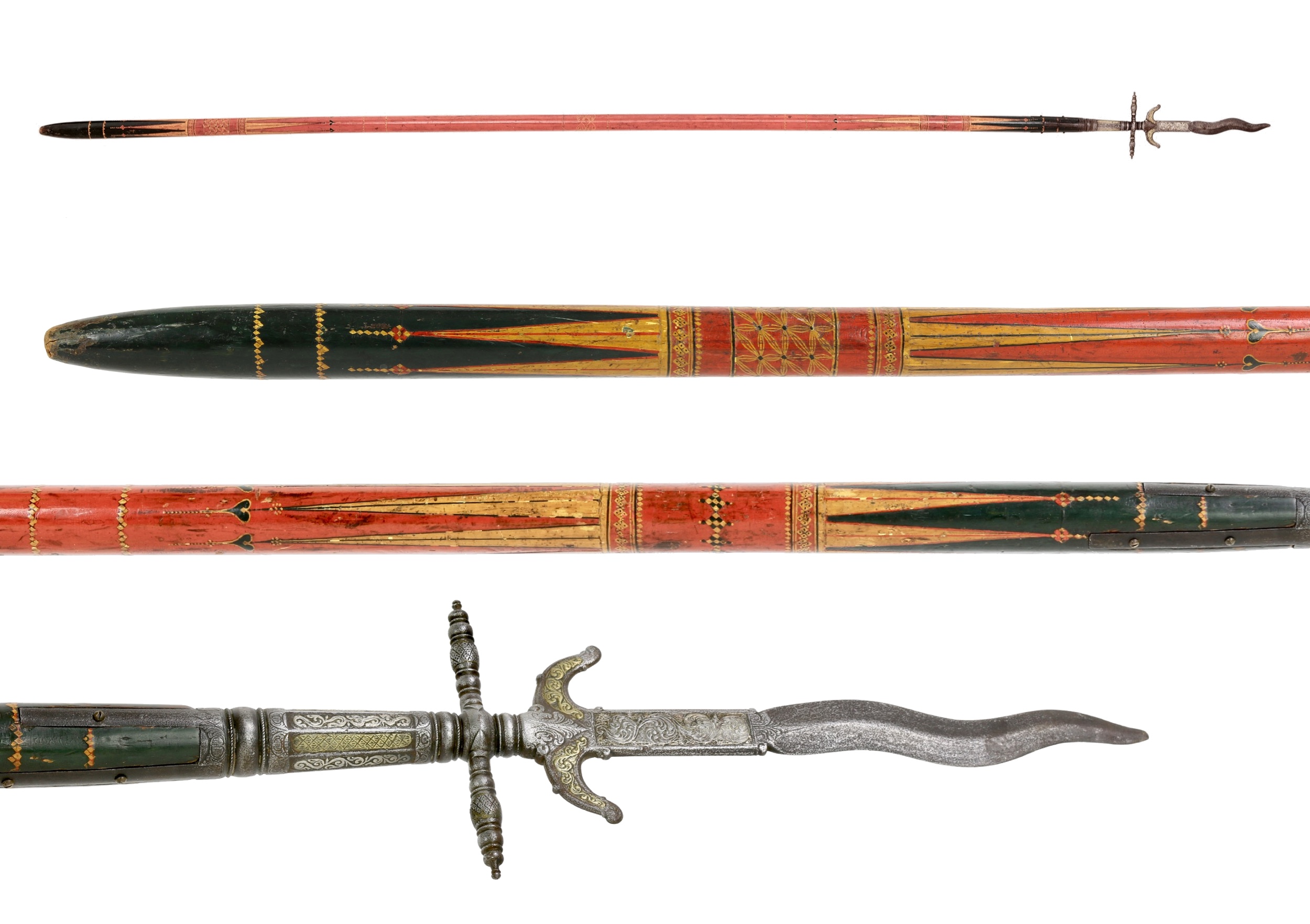
Sinhalese lacquerwork on a fine Sinhalese patisthānaya from the King's Four Workshops.
Sold by Mandarin Mansion in 2019.
Further reading
Article: Sinhalese lacquer work
Notes
1. See Ananda K. Coomaraswamy; Medieaval Sinhalese Art, Pantheon Books, New York, Second Edition of the 1908 original, 1956. Page 216-217.
